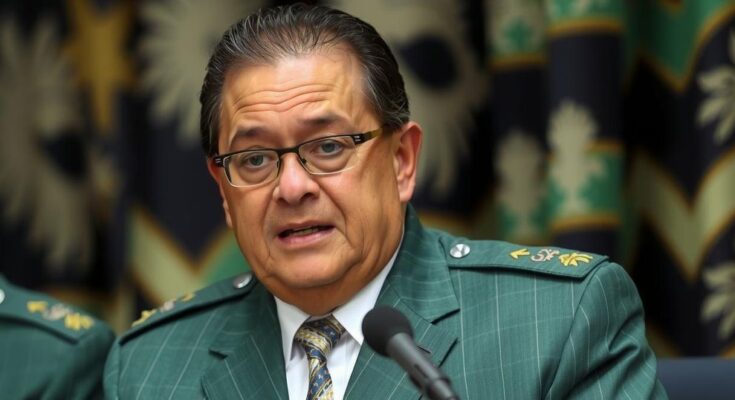Papua New Guinea’s Police Minister condemned recent social media claims of cannibalism linked to a violent altercation resulting in a brother’s death. Graphic images have sparked outrage, leading to discussions about the negative stereotypes associated with the country. Minister Tsiamalili emphasized that such brutalities do not define the nation or its values. Prime Minister Marape also addressed related remarks made by President Biden, reinforcing the need to shift perceptions of Papua New Guinea.
Papua New Guinea’s Police Minister Peter Tsiamalili has condemned alarming reports of cannibalism that have circulated on social media, insisting that such actions are not representative of the nation. Graphic images published in a leading newspaper show men holding what appears to be a severed human foot, although no actual consumption is depicted. Tsiamalili stated that these disturbing occurrences arose from a violent conflict between two brothers in Saki Village, leading to the tragic death of the elder sibling. He emphasized that such acts threaten the societal values integral to Papua New Guinea’s identity and civilization.
The grisly account stems from an incident that occurred a month ago in the Goilala district, with recent online attention amplifying its impact. Tsiamalili denounced these “barbaric actions” by a group of youths, highlighting their shock to the collective conscience of the nation and labeling them as intolerable. Such sensationalized portrayals contribute to the outdated stereotypes surrounding Papua New Guinea, known historically for instances of cannibalism among a few isolated tribes, yet significant progress has been made since then.
The discussion surrounding this topic gained renewed scrutiny following a comment made by U.S. President Joe Biden in 2024, suggesting connections to cannibalism when referencing his uncle’s disappearance during World War II. Papua New Guinea’s Prime Minister James Marape has downplayed these remarks, emphasizing Biden’s generally positive perception of the country in his personal interactions.
Cannibalism in Papua New Guinea has been a subject of historical and cultural significance, particularly in the context of certain isolated tribes. Such incidents have often been sensationalized, leading to a negative international image of the nation. Current social media dynamics further exacerbate these portrayals, prompting government officials to address these misconceptions and advocate for a more civilized representation of Papua New Guinea.
In conclusion, the recent claims of cannibalism in Papua New Guinea have prompted a strong condemnation from officials, particularly Police Minister Peter Tsiamalili, who asserts that such actions do not reflect the nation’s identity. While the incident that sparked this discourse is indeed tragic, it highlights ongoing challenges in combatting stereotypes associated with Papua New Guinea’s past and ensuring that the values of humanity and society prevail over brutal actions. As the country seeks to evolve from outdated perceptions, it is crucial to foster a narrative that focuses on the progress and rich culture of its people.
Original Source: www.straitstimes.com




